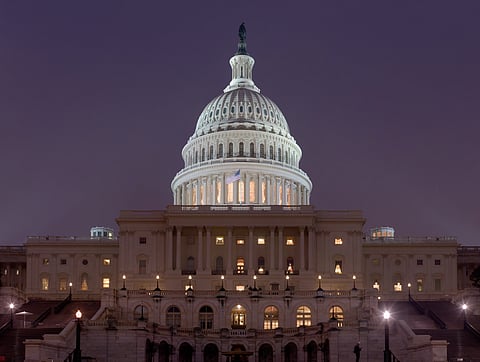

President Donald Trump has initiated a controversial move to cancel $4.9 billion in congressionally approved foreign aid, intensifying tensions with lawmakers over control of federal spending.
The action, announced in a letter to House Speaker Mike Johnson on Thursday, targets 15 international programs, primarily managed by the U.S. Agency for International Development (USAID) and the Department of State.
This decision, described as a "pocket rescission," aims to bypass Congress by withholding funds until they expire at the fiscal year’s end on September 30.
The maneuver has drawn sharp criticism, particularly from Democratic lawmakers and Republican Senator Susan Collins, who chairs the Senate Appropriations Committee.
Collins called the action illegal, citing a Government Accountability Office ruling that pocket rescissions violate the Impoundment Control Act.
“Any effort to rescind appropriated funds without congressional approval is a clear violation of the law,” she stated.
Senate Minority Leader Chuck Schumer warned that Trump’s approach risks a government shutdown by disregarding spending laws, urging Republicans to reject the move.
The $4.9 billion in cuts includes $3.2 billion from USAID development programs, $393 million from State Department peacekeeping efforts, $322 million from the Democracy Fund, and $444 million in other peacekeeping aid.
The White House defends the cuts as aligning with Trump’s “America First” priorities, with Office of Management and Budget Director Russell Vought arguing the funds would lapse within 45 days.
Democrats, including Rep. Rosa DeLauro, condemned the action as an unlawful attempt to “steal” appropriated funds, signaling plans to impose stricter limits on presidential authority in future negotiations.